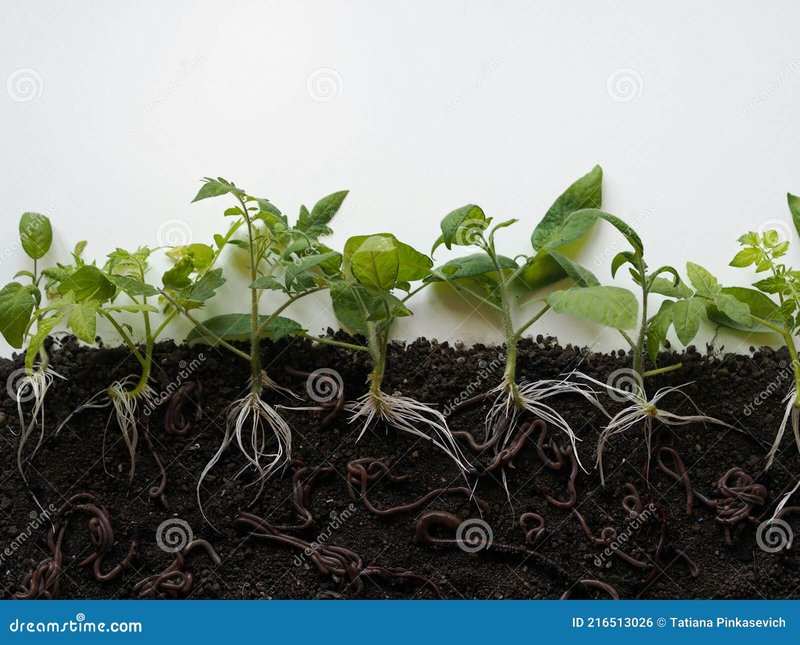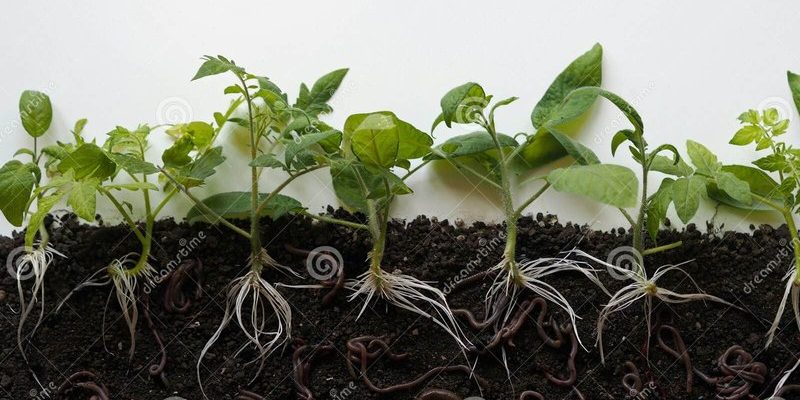
Imagine a bustling city, with cars zooming around, people building bridges, and workers digging tunnels. That’s kind of what earthworms do in the soil. They create pathways, mix nutrients, and help plants access water and minerals. So, how exactly do earthworms contribute to root development in plants? Let’s dig into that.
Understanding Earthworms’ Role in Soil
Earthworms might be small, but they have a massive impact on soil health. These creatures consume the organic material in the soil, like decaying leaves and other plant matter, breaking it down into nutrient-rich substances. It’s like composting, but naturally done right in the ground! When they digest this material, they produce *castings*, which are basically worm poop. And guess what? Those castings are packed with nutrients like nitrogen, phosphorus, and potassium, all essential for plant growth.
When earthworms move through the soil, they create tiny tunnels as they burrow. Imagine that as they wiggle their way underground, they’re carving out highways for water and air to travel through. This aeration helps prevent soil compaction, making it easier for roots to spread and access the nutrients they need. So, in a way, earthworms act like a personal entourage for plant roots, helping them stretch out and explore their environment.
The Connection Between Earthworm Activity and Root Growth
You might be wondering how earthworm activity translates to better root development. Well, studies show that the presence of earthworms is often linked to increased root biomass. This means that plants with earthworms in their soil tend to have more and healthier roots. It’s as if those little creatures are coaching the roots to grow stronger—almost like a plant version of a personal trainer!
When roots grow deeper, they can reach moisture and nutrients that are farther away from the surface. This becomes super important during dry seasons when water is limited. Not only does this deeper growth help plants survive, but it also makes them more resilient to stressors like pests and diseases. Basically, earthworms give plants the foundation they need to stand tall and weather whatever nature throws their way.
Soil Structure and Earthworm Impact
Another piece of the puzzle is soil structure. Healthy soil is like a sponge that can hold the right amount of water without getting waterlogged. When earthworms break down organic material and create tunnels, they improve soil structure, allowing for better water retention and drainage. This balance is crucial because too much water can suffocate roots, while too little can dry them out.
Good soil structure also fosters beneficial microbial life. Healthy roots and these microbes have a wonderful partnership going on. While roots take in nutrients from the soil, they provide sugars and other organic compounds to the microbes in return. Worms help maintain this balance, creating a thriving ecosystem that supports plant health.
Enhancing Nutrient Availability
Earthworms don’t just create nice tunnels; they also help in nutrient cycling. As they break down organic matter, they release nutrients into the soil where plant roots can access them more easily. Think of it like the earthworms are the delivery people of the soil, ensuring that essential nutrients get to the plants just when they need them.
For instance, nitrogen is a vital nutrient for plant growth. As earthworms digest organic material, they convert it into forms that are more available for plants to absorb. This means not only stronger roots but also greener leaves and bigger blooms. It’s like giving plants a buffet of nutrients right at their roots!
How to Encourage Earthworm Activity in Your Garden
If you want to reap the benefits of earthworms in your garden, there are a few simple steps you can take to encourage their presence. Honestly, it’s not complicated!
- Avoid chemical fertilizers and pesticides: These can harm earthworm populations. Instead, go for organic methods that keep both your soil and its inhabitants healthy.
- Add organic matter: Incorporate compost, leaf litter, or decaying plants into your garden. This provides food for earthworms while enriching the soil.
- Keep the soil covered: Mulching helps retain moisture and provides a habitat for earthworms to thrive.
By creating a welcoming environment for earthworms, you’re setting your plants up for success.
Why Earthworms Matter for Sustainable Gardening
In an era where sustainable practices are becoming increasingly important, earthworms stand out as a natural ally. They improve soil health and fertility without needing synthetic inputs—making your gardening efforts both eco-friendly and efficient. By nurturing earthworm populations, you’re not just enhancing your plants’ growth; you’re also contributing to the overall health of the ecosystem.
Here’s the thing: when we promote healthy soil, we support biodiversity, which is essential for a balanced environment. So, every time you see an earthworm in your garden, remember that they’re not just slimy little creatures; they’re vital workers supporting the planet’s health.
So, there you have it! Earthworms play a significant role in root development for plants, enhancing soil structure, nutrient availability, and overall plant health. By understanding and appreciating the contributions of these little creatures, you can become a more effective gardener. Implementing practices that support earthworm populations will serve you well.
As you dig in your garden, think about those earthworms working tirelessly under the surface. They might not have a spotlight, but their efforts are what allow your plants to flourish! So, the next time you spot an earthworm, give it a nod of appreciation—it’s doing its part to help your garden thrive.

